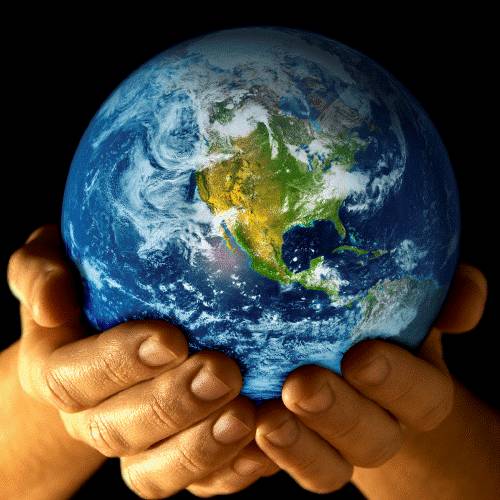We live in an artificially divided piece of land that is a miniscule chunk of a small rock that – along with eight other companions – is constantly falling towards a scintillating red ball purely made out of gases. This piece of land, that we hold so dear and call our own, is no different in significance from the land in other areas of the world. The occupants of this land are not constitutionally different – at least not enough to matter – from the inhabitants of any other piece of land on this celestial rock.
Thus, from the eyes of the cosmic arena, we are ant-like creatures supported by a celestial rock that keeps falling towards the Sun, which itself, is falling towards the centre of our galaxy, which in turn, is falling towards the centre of the universe – all the while expanding in ways we’ve only begun to contemplate.
We occupy a small part of the shore that meets the cosmic ocean and we share this shore equally with all the inhabitants. A cursory look at the face of our planet can reveal almost instantly that this planet belongs to man; we’ve certainly made our presence felt. However, if we consider the evolutionary timeline in comparison with the existence of other life forms on our planet, we’re a ridiculously young species.
The universal clock runs on an infinitely larger scale than our imagination and the time we’ve spent on our planet is nothing but a fleeting moment, an insignificant and minute cosmic minute. And yet, just in the very small amount of time that we’ve been here, we’ve managed to create problems for every single species and interfered with systems much wiser and older than us. If we were to listen perceptively to the seismic cries of our planet, most of them would contain objections to our vanity.
Vanity, the sin that all religions have warned against, has become the defining characteristic of our species. While the entire fate of our species and the planet hangs in the balance as greenhouse gasses reach an all time high and deforestation rates reach alarming levels, we seem to find it fitting to debate over the authenticity of our patriotism to a piece of land.
Some of our biggest concerns as a nation include whether a young girl who stands up for the rights of women is actually a stooge planted by external forces or whether our military has the weaponry to go head to head with our neighboring country.
As a people, our devotions lie in highlighting to anyone who disagrees, that our way of understanding the world is absolutely the right way. We keep fighting amongst ourselves over whose version of Islam is the correct version, whether our blasphemy laws are adequately prosecutorial, and whether our cricket team is better than that of our neighboring country, which we consider to be the true emanation of evil.
Everything from our food choices, idols, activities, hobbies, and interests screams materialism!
If this is the narrative that our people paint as a nation, there is nothing wrong in suggesting that we’ve all consumed a fatal dose of blissful ignorance that has rendered our mental faculties hopelessly useless.
While we watch our 9 o clock news like dutiful and passive consumers, it really doesn’t occur to us that there are bigger issues than those that our media highlights, and that being concerned about those bigger issues might just be our only chance of surviving, not as a group, not as a religion, not as a country, but as a species!
Environmental conscientiousness is not really a quality people are generous enough to appreciate globally. Talk about how the ozone layer is irreparably depleting and you get labeled as a counter-culturalist. But in our country, the situation is infinitely worst. We don’t judge people for being concerned about the environment; we simply don’t talk about the environment. Our primary education includes very little information on pollution and the environment and once a child passes those elementary classes, everything ingrained within our social dynamics tranquilizes our concern for our planet.
Most educated people in our country would shake their heads at the thought of being environmentally friendly. “We have much bigger concerns,” they would immediately retort. However, with the way things are going, there is really no concern that could possibly be bigger than the environment.
According to a research published in National Geographic in 2004, a million land dwelling plants and animals could start becoming extinct by 2050. For people who are conveniently ignorant of basic ecology, such a massive decrease in the biodiversity of the planet will essentially mean the end of life as we know it. Biodiversity maintains ecosystems and our species has been collectively taking active steps to reduce it.
Monumental challenges lie ahead for the human race and all life on our planet, and yet, not only does our country ignore the intensity of this problem, it refuses to even recognize it.
It is now a factual certainty that if we continue to ignore what the Earth is trying to tell us, if we don’t stop and mend our ways, life as we know it will cease to exist. It is no longer a ridiculous idea in a dystopian science fiction movie, it is a reality whether we chose to accept it or not.
Apart from threats to biodiversity, we have major concerns of water shortage, deforestation, overgrazing, and greenhouse gases, all of which are adding up more rapidly than our planet can restore the damage. The central character in this global destruction is man.
The transport industry, the fossil fuel industry, and the animal agriculture industry are some of the major players in this calamitous game. Unfortunately, people find it easy to disassociate themselves with the global devastation because they fail to attach the responsibility to themselves. Even more unnerving is the fact that while the disastrous impact of the transport and the fossil fuel industry is at least acknowledged, the animal agriculture industry is conveniently left out of environmental discussions.
South Asia contributes a major chunk of the greenhouses gases produced by animal agriculture. Animal agriculture has become one of the most significant contributors in the production of greenhouse gases such as methane; causing water shortage, deforestation, and the extinction of wild life through the destruction of habitats.
As people starve in different areas of the globe along with parts of our very own country, the animal agriculture industry deems it justified to overpopulate domestic animals because of the increasing demands for meat and feed livestock massive amounts of grains that are specifically cultivated for them. If we were to use the livestock feed and turn it into human food, it is a scientific fact that we’d be able to produce a healthy meal for each person on the planet.
But these realizations – apart from causing cognitive dissonance – come with heavy burdens. Not only do they require us to change our priorities and grow up as a species, they require us to make difficult personal choices. In the face of a global climate shift, we’ll need to adapt and adapt fast. We will have to begin by abandoning our credulous attachment to our non-issues and learning to co-exist, we’ll need a massive paradigm shift if we have any realistic hope of saving the planet.
It is becoming progressively clear that considering the current meat eating practices, sustainable animal agriculture will be impossible. If the demand keeps rising, by 2020, we won’t have enough land to raise livestock. An environmentally conscientious approach doesn’t only mean admitting that we’re facing one of the biggest challenges in the history of our planet, it means abandoning conventional habits that we hold dear and placing sustainability over economic benefits, pleasure, and convenience.
We will have to change our diet, we will have to change our lifestyles, and we will have to recognize the duty that we owe to all earthlings.
The first practical step that comes out of accepting this duty is making lifestyle changes that are aligned with saving the planet. The West is obsessed with eating meat, but we’re not really a frugal lot when it comes to meat consumption. This has to drastically change or there will simply be no more forests to cut, no more animals besides the ones we’ve domesticated, and the complex, maternal, and nurturing system that sustains the diversity of life on Earth will eventually give up.
A paradigm shift that ambitiously seeks to save the planet requires efforts on a multi-dimensional level.
(a) We will need to develop a reciprocal relationship with our planet, which means making food in a way that reintroduces energy back into the ecosystem and allows it to make more food sustainably.
(b) We will need to change our current education system at the primary level with one that educates children about what it means to be human, what compassion is, why and how they need to care for the planet, how they can live in ways that actively contribute to biodiversity, sustainability, and evolution.
It is depressing to come to terms with the fact that while we discuss a paradigm shift in dietary habits and an evolution of our education system, our country doesn’t even have an policy that could remotely address environmental issues.
It is depressing because it is accompanied by the appreciation of the limitless nature of our capacity as a species. We were meant to live for so much more, much more than the mindless killing of our fellow beings, much more than the hatred that we’ve learnt to incite, much more than the narcissism that we’ve grown to love – and yet, somewhere along the way, we lost ourselves.
But fret not my friends, the capacity of the human soul is indefatigable, the ability of the human brain unfathomable, with a passion and a will to live embedded in each sinew of our being, we will not let ourselves perish, provided that we act now!






